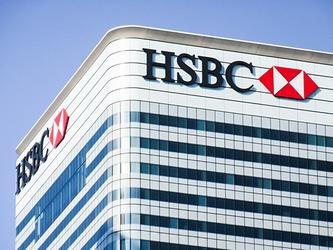In for a penny: HSBC and insights
What does it mean to be a ‘citizen of the world’? At a time of political and economic unrest, and recovery from the Covid-19 pandemic – and following a period of rising nationalism – what does an ‘internationalist’ look like?
These questions are at the crux of a recent push by HSBC to reimagine itself and examine its internationalist credentials. The British bank, with its roots in Hong Kong and Shanghai, is one of the world’s biggest financial services firms and has long positioned itself as ‘the world’s local bank’, with worldwide operations generating a reported profit of $14.7bn and revenues in excess of $49bn in 2021.
However, given the changes afoot in the global economy and in many societies worldwide, HSBC has been using insight to stay ahead of its competitors and maintain its international credentials. The result has been a piece of work focused on identifying the characteristics of a modern internationalist (see boxout), and, ultimately, using the findings to shape HSBC’s understanding of its brand and communications functions.
Globetrotting ambitions
The internationalists project was born out of a desire to look at how HSBC’s brand could continue to evolve, and to develop something that could be “creative and catch an emotional nerve”, according to Sebastian Mitchinson, insight manager at HSBC. “We have been the ‘world’s local bank’. We have moved on to a story of ‘together we thrive’, and, more recently, embraced ‘opening up a world of opportunity’. This is about making sure we are always resonating with global audiences.
“But then there is the local factor as well. How do you straddle those two spheres [local and international], particularly in the world as it is now, when the pace of change is exponential? A lot of our competitors are strong in their local markets or have different competitors. They are all shaping the business audience’s expectations, and we need to keep up with that.”
The company uses a range of suppliers – from large multinationals, such as Kantar and Ipsos, to smaller self-service suppliers, including InMoment and Qualtrics – with 30 to 40 companies in its ‘agency ecosystem’, an informal roster for suppliers that acts as a form of directory.
For the internationalists project, however, the bank was on the lookout for fresh voices, as well as its tried-and-trusted partners, says Mitchinson. Differentology eventually won the pitch, and the decision was taken to focus on ‘internationalists’ as a theme for the brand.
“I really loved their website – the way they presented things hit home with me,” Mitchinson explains. “I thought this could give us something different.
“We wanted to go after internationalists, which aligns with our brand ambition to be the world’s leading international bank. If we can understand those people, their mindset and where they are coming from, how they approach the world and navigate change, and what appeals and resonates with them, we can shape our point of view around that and talk to them.”
What exactly is an internationalist? Traditionally, HSBC had examined the idea through customers’ needs – a consumer having children overseas, a business with international trade. The new project focused on internationalists at an attitudinal level and set out to understand aspects of their mindset, such as acceptance of other cultures and a general open-mindedness. This broad definition covers approximately half of the population.
“As a bank, we wanted to relook at what international means in light of cultural changes and the way the world is changing around us, even before Covid-19,” says Josh Sorene, head of brand and reputation performance and insights at HSBC. “Part of this was expanding our view of international beyond just physical movement of people. As a newly formed insight team, we want to bring disruptive thinking into the bank. This means challenging the status quo around what international really means.”
The findings confirmed many of the aspects of being an internationalist, and allowed the bank to understand their characteristics and role in society. One example, says Mitchinson, is their love of stability in an ever changing world, as well as a more outward-looking approach to the world around them.
“The world is now based on change, and having a moment of stability is a fantastic luxury to be savoured. They can pivot with change, but also embrace the stable moments around them,” he says.
“There’s an appreciation that the individual focus for society is not the only way either. Sometimes it pays to be more collective, be it looking after your family or looking after the planet. Sometimes, we have to work together.”
The right path
The work has helped change HSBC’s approach to its brand, culminating in a restructure of the firm’s insights function. What was once a single insights department has been split into three, with one focused on consumer wealth, another on business to business and commercial, and a smaller, crossline business team – led by Sorene – that is sat within the bank’s brand and communications department. The restructure is part of a more radical overhaul of how HSBC treats the concept of brand.
“As a newly formed communication and brand function, this allows us to elevate the role of the brand,” says Sorene. “Brands should guide how organisations behave. As a brand insight team, we are focusing on bridging the gap between expectation and reality.”
“We are deliberately decoupling brand from marketing,” he adds. “That is a strategic decision we are making to elevate and change what brand means, and trying to move brand away from being advertising and marcomms to being anything that changes and influences perceptions of HSBC.
“This piece of work has done a great job in unifying a persona that can work across the bank. There is often a focus on ‘a commercial customer looks like this; a retail customer looks like this’, while, ultimately, they are just people – there is one brand; there is one human.”
The result is that, as of the end of 2021, marketing is no longer a function, but a discipline within the organisation. There were two primary drivers behind this. One was that marketing would sit better within the lines of business. Marketing is now more of a short-term sales function within the business; brand has been decoupled from it and placed in the communications function, which has been renamed as ‘communications and brand’.
“The purpose of that is two-fold,” says Sorene. “One is that there was a feeling we were suppressing what we really meant by the brand by sitting it within marketing. When brand was in marketing, brand was logos, designs, font sizes and distinctive assets. While it is still those things, it is now far broader and, as a brand team, we are across anything that impacts on how people view the bank.”
He goes on to say: “A lot of brand measures that exist in organisations are vanity measures – things such as the number of likes and clicks and awareness. What does it translate into, and can we start to quantify better the commercial impact of some of the movements we see in the data, and demystify what brand means? For too many people, brand is some kind of wishy-washy advertising idea, and we are trying to change that. We also need to go beyond what consumers think of us to understand brand through the lens of employees and stakeholders.”
Over the horizon
The restructure means that the global head of communications and brand, for the first time, sits on the HSBC board, providing direct access to the executive team and board for the insights divisions. This means that insights work, such as the internationalists project, has the opportunity to influence strategy and take on a far more wide-ranging role across multiple departments at once, avoiding a fragmentary or siloed approach.
An insight guild has been set up to ensure insights professionals working across the company are adequately supported with knowledge, training and relationships. There has also been a push to democratise access to insights across the company through Hall & Partners’ Hub platform. The challenge in the longer term for HSBC is to get more enterprise-wide insights and to build a story around them.
HSBC has long focused on its international profile, as much a legacy of its formation during the 19th century in Hong Kong as its modern-day status as a global financial powerhouse. “One of the things that becomes very clear as a bank is that international is our superpower – it is our USP,” Sorene states. “The challenge is how to make international relevant, not just to different parts of the bank, but also to various countries. How HSBC is seen in the UK is very different from how it is seen in Singapore, for example.”
It comes at a time when world events – from Brexit and Donald Trump’s election in the US to the strong showings for nationalist parties in the recent French presidential election – suggest a more insular, close-minded world. If globalisation is in retreat, how does being an internationalist remain relevant in that context?
“This is the bedrock or springboard that allows us to understand the many lenses of international and be the thought provoker that moves the mindset of the bank around international,” says Sorene.
“It is not just the physical movement of people and goods – it is a mindset, behaviour and attitude. Once you look at international through that lens, it opens up a whole different universe.”
A global view
For the internationalists project, Differentology carried out a study in eight global markets: Canada, China, Hong Kong, Mexico, Singapore, the United Arab Emirates, the UK and the US. The research came in four parts: the first was an artificial intelligence discourse and semiotic analysis, followed by online ethnographies, online filmed interviews and stakeholder workshops. Around 144 respondents took part in the qualitative section of the research, ranging in age from 20 to 70, and from entrepreneurs and senior executive team members to people closer to the beginning of their careers. There were 18 interviews carried out in each of the eight markets featured in the research.
The findings focused on three elements. The first was an ‘anatomy of an internationalist’, which set out the characteristics seen in internationalists identified in the study. This included factors such as being ‘adaptable’, ‘ambitious’, ‘authentic’, having ‘agency’ and being ‘active’ and mobile. These five characteristics remained constant across geographies, political persuasion or income level.
The second element focused on the ‘navigation system’ for internationalists. For most, stability was the new luxury, as world events and global markets become more turbulent. There was an appreciation for the advances being made in non-western nations, such as China, and happiness was viewed as the ‘currency of the future’. Internationalists were, predictably, profoundly anti-isolationist and championed openness, connectivity and movement, as well as favouring sustainable capitalism, innovation and transparency.
The final part of the project examined three opportunities for HSBC as a brand: anti-isolationism, change as part of the firm’s DNA, and fluidity in identity and how it alters over people’s lifetimes.
This article is from the July 2022 edition of Impact magazine.

We hope you enjoyed this article.
Research Live is published by MRS.
The Market Research Society (MRS) exists to promote and protect the research sector, showcasing how research delivers impact for businesses and government.
Members of MRS enjoy many benefits including tailoured policy guidance, discounts on training and conferences, and access to member-only content.
For example, there's an archive of winning case studies from over a decade of MRS Awards.
Find out more about the benefits of joining MRS here.













0 Comments